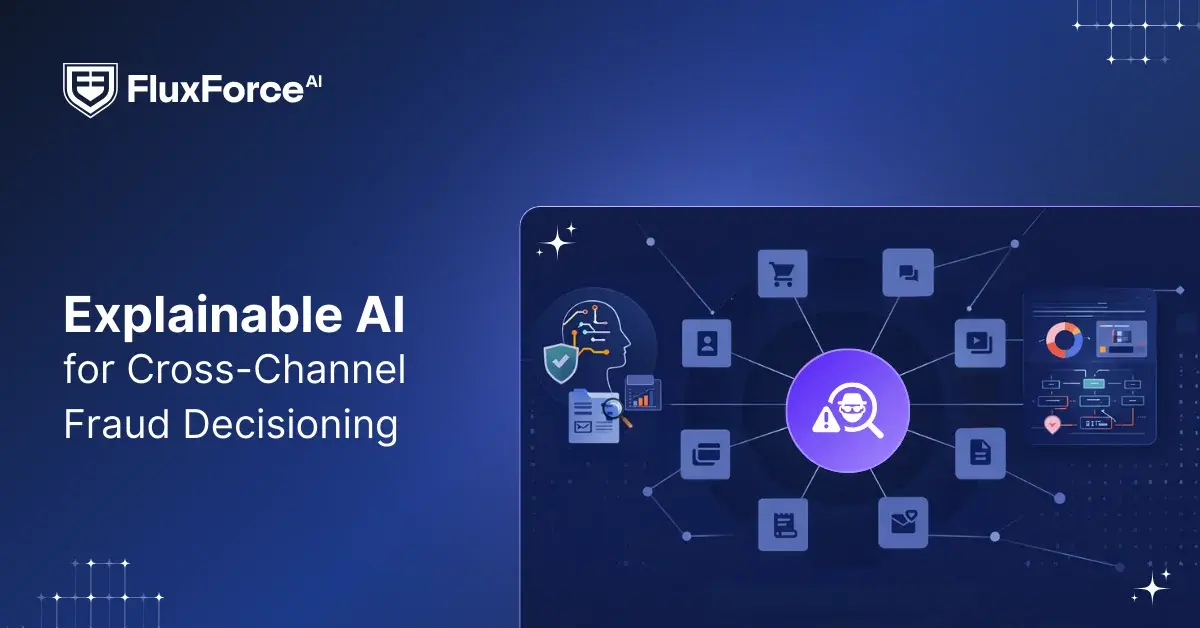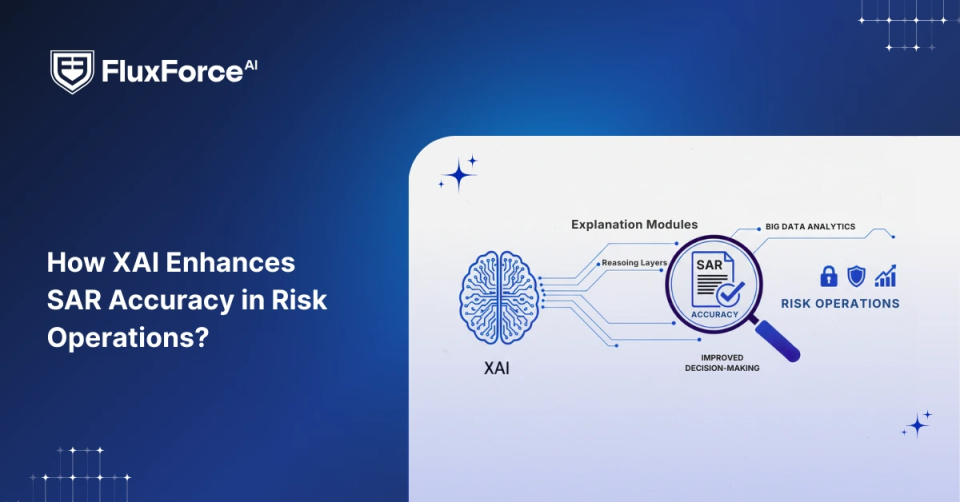Listen To Our Podcast 🎧
%20(1).png)
Introduction
Organizations have long viewed compliance as a cost center, but Agentic Artificial Intelligence is transforming it into a driver of economic value.
Agentic systems, through autonomous decision-making and ethical reasoning, act as a protective layer for institutions. From risk identification to regulatory process optimization, they operate with minimal human oversight while maintaining moral alignment.
This article highlights how the morality embedded within Agentic AI is creating measurable economic advantage for institutions, turning compliance from a reactive obligation into a source of strategic and financial value.
Role of Agentic AI in Compliance & Economic Morality

Agentic AI combines autonomy and agency philosophy, allowing systems to make decisions that align with organizational rules and ethical standards. Unlike traditional AI, which passively executes rules, agentic systems interpret complex regulations, weigh ethical considerations, and take actions proactively.
In operational terms, agentic AI can:
- Prioritize regulatory risk: By autonomously analysing transactions or contractual data, AI can identify high-risk areas faster and with greater precision than rule-based methods.
- Automate ethically aligned decisions: AI evaluates potential outcomes against compliance policies and moral standards, ensuring consistency and accountability.
- Scale oversight efficiently: Institutions operating across multiple geographies can maintain uniform compliance without expanding human monitoring teams.
With Agentic AI’s ethical decision-making, organizations reduce regulatory risks, prevent costly fines, and optimize operational workflows. These benefits translate into quantifiable economic gains, turning compliance into a strategic tool for risk control, efficiency, and trust.
How Agentic AI transforms compliance costs into profits

Agentic AI integrates auto-compliance and moral decision-making to transform traditionally expensive regulatory functions into cost-saving and profit-generating processes. Here are some profits that institutions often overlook:
1. Reduced compliance errors
Agentic systems continuously monitor transactions, contracts, and operational data, detecting inconsistencies or potential violations with greater precision than manual oversight. This can cut errors by up to 40%, reducing the risk of costly regulatory escalations and audit exceptions.
2. Lower human resource requirements
Automation of routine monitoring, approvals, and reporting reduces dependency on large compliance teams. Institutions can reallocate human resources to higher-value activities, resulting in significant annual savings without compromising oversight quality.
3. Faster regulatory response
Agentic AI delivers immediate, actionable insights during audits, inquiries, or regulatory reporting. By accelerating response times, firms avoid average penalties of $1.2 million per incident and demonstrate proactive compliance to regulators.
4. Enhanced trust and brand equity
Consistent adherence to both regulatory and ethical standards strengthen stakeholder confidence. Firms leveraging agentic AI gain a reputational advantage, improving market perception and long-term client loyalty.
5. Operational efficiency
Automated reporting, documentation, and approval workflows free hundreds of hours annually, allowing institutions to focus on strategic initiatives rather than manual compliance tasks. Integration with risk management systems ensures workflows are both efficient and ethically aligned, maximizing economic impact.
The Economics of Morality in AI Governance
The “economics of morality” reframes ethical compliance as a source of measurable organizational value. By integrating moral reasoning into agentic AI systems, institutions can translate ethical behaviour into positive business outcomes.
Key benefits of integrating morality into compliance AI include:
- Regulatory Efficiency: Agentic AI ensures adherence to multiple regulatory frameworks simultaneously, reducing manual oversight and operational complexity.
- Financial Risk Mitigation: Early detection of potential violations allows institutions to avoid fines, legal fees, and operational interruptions.
- Consistency in Ethical Decisions: Autonomous systems maintain uniform compliance standards across processes and geographies, minimizing human bias and error.
- Strategic Market Advantage: Institutions demonstrating reliable, ethically aligned compliance gain higher trust from investors and partners, positively affecting market reputation and capital access.

Shaping the Future of AI in Finance
Fluxforce research uncovers how banks and enterprises are adapting to fraud, compliance, and data challenges in 2025.
Designing Ethical AI in Finance: Step-by-Step Guidance

Creating agentic systems that make decisions aligned with both compliance and ethical standards requires a structured, governance-focused approach. Key steps include:
1. Define Compliance and Ethical Objectives
Start by mapping regulatory obligations, internal policies, and ethical principles across all operational workflows. Identify areas where compliance failure would have material financial or reputational impact. This enables prioritization of high-risk processes and ensures AI interventions generate measurable value.
2. Integrate Ethical Decision Frameworks
Design algorithms that evaluate actions against both legal requirements and moral guidelines. This ensures autonomous decisions are consistent, auditable, and defensible, reducing reliance on human intervention while maintaining accountability.
3. Implement Governance and Oversight Mechanisms
Establish comprehensive documentation, decision logs, and review protocols. These mechanisms allow institutions to demonstrate regulatory compliance, ethical alignment, and operational control, critical for audits and stakeholder confidence.
4. Continuous Monitoring and Optimization
Agentic systems must be dynamically updated as regulations, internal policies, and ethical standards evolve. Performance monitoring, scenario testing, and iterative refinement ensure that decisions remain aligned with strategic goals, while quantifying cost savings, risk reduction, and operational improvements.
AI-powered Compliance Risk Management Strategies
AI-driven compliance strategies allow institutions to embed moral reasoning directly into operational workflows, creating measurable economic and strategic value. A structured approach involves:
- Dynamic Risk Scoring: Continuously evaluate transactions, contracts, and operational processes, identifying high-impact compliance risks with precision and speed. Risk prioritization ensures that resources are focused on areas with greatest potential financial or regulatory impact.
- Proactive Issue Detection and Resolution: By simulating regulatory outcomes in real time, AI identifies potential breaches before they materialize, enabling corrective measures that reduce exposure to fines, reputational damage, and operational disruptions.
- Scenario Modelling and Predictive Forecasting: Agentic systems can project the financial and operational impact of potential compliance decisions. This enables leadership to weigh trade-offs, optimize workflows, and make risk-informed strategic choices.
- Resource Optimization and Operational Efficiency: Autonomous decision-making reduces dependency on manual monitoring, enabling teams to focus on complex, high-value interventions. This decreases operational costs while maintaining rigorous compliance oversight.
- Performance Measurement and Value Quantification: Outcomes such as fines avoided, audit exceptions reduced, and consistent ethical decision application can be quantified, providing direct economic evidence of compliance effectiveness.
Turn Your Data into Real-Time Decisions
Conclusion
The integration of agentic AI systems has demonstrated that compliance is not merely a cost center. Through the integration of autonomous decision-making with ethical reasoning, institutions can reduce regulatory risk, prevent costly penalties, and streamline operational workflows.
These systems translate compliance actions into quantifiable economic and strategic value, enhancing efficiency, governance, and stakeholder trust. Organizations adopting agentic AI can measure the financial and operational benefits of morally aligned decisions, turning compliance into a strategic lever that supports risk management, operational resilience, and long-term profitability.


-1.webp)



Share this article